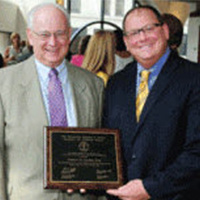Gainesville Felony Lawyer, New York
Sponsored Law Firm
-
 x
x

Click For More Info:
-
Cohen & Bernstein, L.L.C.
1360 Clifton Ave #309 Clifton, NJ 07012» view mapCriminal Defense We’re In this Together!
We work hand in hand with our clients to ensure all of your questions are answered and progress through your legal issue is seamless.
800-978-7341
Dominic Paul Candino
✓ VERIFIED *Status is reviewed annually. For latest information visit hereCriminal, DUI-DWI, Felony, Accident & Injury, Personal Injury
Personal injury and criminal law is a complex collection of ever-changing legislation and case law. Many of those injured by a third party's negligen... (more)
James A. Napier
✓ VERIFIED *Status is reviewed annually. For latest information visit hereCriminal, DUI-DWI, Felony
We have dedicated our careers to protecting New York residents from serious criminal charges.
James A. Napier is a practicing attorney in New York state. He graduated from Georgetown University Law Center with his J.D. in 1986. He currently wor... (more)
James Quinn Auricchio
Criminal, White Collar Crime, Felony, RICO Act
Status: In Good Standing *Status is reviewed annually. For latest information visit here
FREE CONSULTATION
CONTACT Lindsay Bernstein Clifton, NJ
Lindsay Bernstein Clifton, NJ Practice AreasExpertise
Practice AreasExpertise

